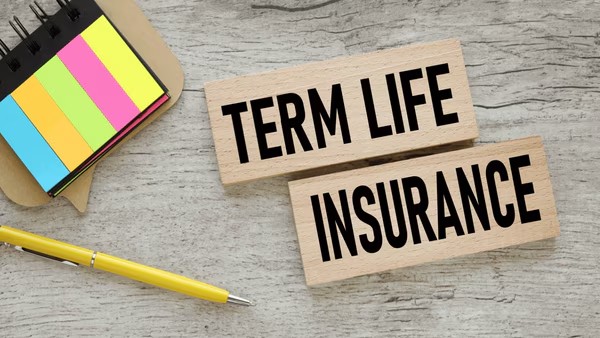Indian economy on strong footing but global uncertainties pose downside risks: FinMin report
New Delhi, Oct 27: Supported by the recent GST reforms, Indian economy continues to be on strong footing and is…

Self-employment is all about freedom and flexibility. You are your own boss, create your client list, and choose your growth trajectory. However, this freedom also makes you responsible for your own financial security. You don’t receive employer-sponsored benefits like insurance or retirement contributions like salaried employees do. Planning your finances prudently becomes that much more necessary in such a scenario. Term insurance is probably one of the easiest and best ways to secure your family and dependents financially.
Term insurance is a simple form of life insurance. If the insured person dies during the policy period, the designated beneficiary receives the agreed amount. This helps secure your family’s financial future. For self-employed individuals, whose earnings can vary from month to month, having this coverage is especially important.
By investing in term insurance for self employed or independent professionals at the onset of their careers, premiums remain low, and the plan can provide protection over a long period. With time, this protection ensures your family is not exposed to financial risk if an untimely incident occurs.
The younger and healthier you are, the lower your premium. Early planning is therefore practical. Delaying until later in life may raise the price and, for some, restrict coverage. Planning ahead is thus sensible. By beginning early, you lock in lower premiums, broader choices, and the flexibility to tailor your coverage to your needs.
Optional accidental death or critical illness riders can be added to give you added coverage. You can raise the sum assured as your income increases, so your financial safety increases along with your profession. You get to choose policies that support your long-term objectives when you invest early.
One of the biggest challenges for self-employed professionals is fluctuating income. Some months may be profitable, while others may be lean. Unlike salaried employees, there is no fixed paycheque. This makes planning for unexpected events more complex.
In such cases, term cover is a protector. If the life assured dies suddenly, the sum assured is given to the nominee, so that dependents are not left with the burden of daily expenses, educational expenses, or loan repayment. The amount received can provide for home expenses and even business borrowings.
Take, for instance, a freelance consultant who gets project-based remuneration. If the consultant dies suddenly, dependents could lose the primary source of income. Term insurance ensures that monthly expenses, school fees, and loans are still managed without burdening dependents.
Term insurance has some self-employed professional-specific benefits:
These benefits make term insurance an essential part of a comprehensive financial strategy for self-employed individuals.
Real-life scenarios can show why term insurance is important:
In all these situations, term insurance coverage provides stability in times of uncertain or nonexistent income.
Tax planning is a crucial aspect of self-employed professionals’ financial management. Premiums on term insurance can be deductible, subject to the prevailing tax regime. Government regulations need to be kept in touch with, for instance, the income tax slab for AY 2026-27 can influence eligibility and benefits.
Self-employed professionals often manage tight budgets. Term insurance is affordable compared with other insurance products. Plans can be customised according to coverage amount, payment frequency, and additional riders.
Even if income is modest initially, it is better to begin with basic coverage than delay altogether. Gradually, you can enhance the coverage and the amount assured. Such flexibility makes term insurance appropriate for various phases of a self-employed professional’s career.
The claim settlement ratio (CSR) is an important factor to consider when choosing an insurance provider, as it reflects the insurer’s reliability. CSR indicates the proportion of claims that an insurer has successfully paid out. A higher CSR indicates that the insurer is trustworthy and effective. For example, Axis Life Insurance has a strong CSR of 99.70%, showing that it is dependable in assisting families during difficult times.
Term insurance is most effective when it is used within a comprehensive financial strategy. Self-employed professionals should also invest in health insurance, retirement savings, and other assets. In combination, these are a solid safety net.
Early protection with term insurance means less worry. You can still have income changes, but you will always know your family is financially secure. This peace of mind enables you to concentrate on your career and future development.
The following table shows the benefits of term insurance for the self-employed:
| Benefit | How it Helps |
| Family Security | Protects dependants from financial hardship |
| Debt Coverage | Ensures loans and obligations are paid |
| Business Continuity | Allows partners time to manage operations |
| Peace of Mind | Reduces stress, enabling focus on work |
Being self-employed can be fulfilling, but it also comes with specific risks. Term insurance serves as more than just a policy; it acts as a financial safety net. In the event of the insured person’s death, the designated beneficiary receives the assured amount. This ensures your family’s security, aids in maintaining business operations, and assists in handling any debts. Getting started with coverage early makes it more affordable, adaptable, and secure for the future.
For self-employed professionals, term insurance is essential. It secures personal and professional goals and provides peace of mind for you and your family. Choosing coverage wisely today ensures long-term security and confidence in your financial planning.
Advertisement